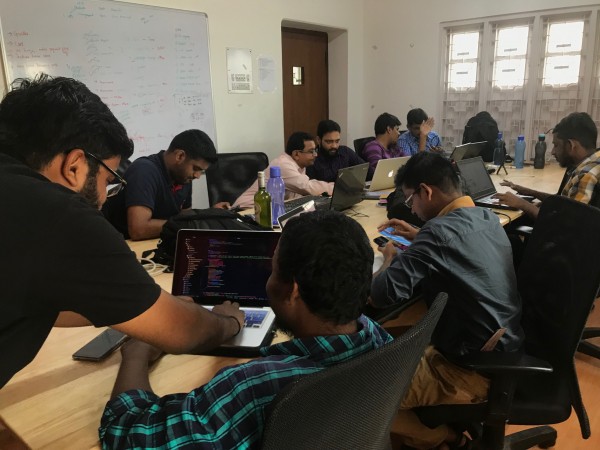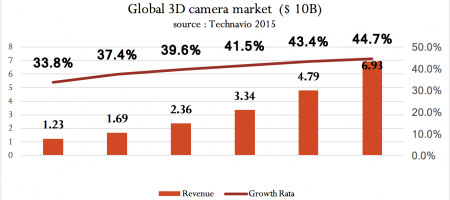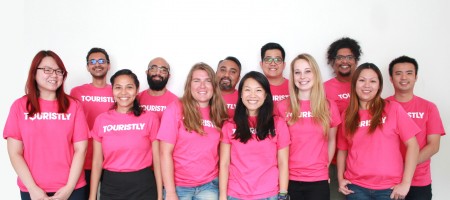In the digital age, there is no dearth of information for travellers looking at planning international trips. What is lacking, however, is travel experience, which makes them miss out on the true essence of any place they visit; the overall procedure of travelling in group tours is extremely fragmented.
This is where PickYourTrail steps in with its tailor-made international holidays and an aim to change the customer experience so they can explore destinations at their own pace. With a unique matching algorithm and price comparison engine that ensures that travellers build their itinerary completely suited to their tastes and at the best online prices, the platform is enabling people to plan their own vacation, in the way they want.
In conversation with co-founder Hari Ganapathy about their growth plans and upcoming travel trends in the industry.
1. You guys started in 2014 and in one of your earlier stories, you mentioned that you’d hit $25 million annual run rate by end of 2018. How is the progress towards that goal?
It’s definitely on track.
To go back a little, when the YourStory piece was published, we had just about launched our trip-planning algorithm with about seven countries. Today you could plan trips to over 250 cities worldwide – you could plan self-drive trips, honeymoons – completely online. We have tremendously improved our routing algorithm and our investments in machine learning are starting to pay off as well. We see up to 23% cost savings compared to our previous algorithms.
Coming back to growth, since 2014, we’ve been growing at a pace of 120+% YoY. 5000+ travellers and 60%+ repeat and referral customers along with the Google India-BCG stamp has set us up to continue our growth at the same pace, if not higher.
2. The general industry perception has been that too many players are trying to solve the Trip Planning problem when the problem isn’t big enough. What is your take as a problem solver?
I agree, the trip-planning part is not a big problem at all. Information architecture/re-architecture cannot be a big market. That’s precisely the reason why we let customers not just plan, but also customise and eventually book on the platform. People hop 38 sites to plan their vacation and they are just not going to stop with the plan. They also want to experience the trip – and that’s where most trip-planning websites fail. They end up being affiliates where you have to out and book. Imagine a 12 night trip – you need to book 3-4 hotels. Ensuring all dates are right, checking hotel location, inclusions, entering credit card details multiple times; that’s not a great experience.
Given that the info side is quite well solved, we actually approached the problem from the other end – the fulfillment side. From supply checks, routing algorithm aimed at optimising cost, to ideal number of nights in a city, hotel-locations, ideal flying duration, we have written many lines of code that help travellers make the right choice. And the beauty is that, these are learning systems, so, as more and more travellers book with us, we are discovering newer routes, hacks, thanks to travellers. That is adding to the overall data set. Recently, we identified a route in Europe that saved almost Rs.27,000 in flights, thanks to a travel hacker who booked with us.
If you look at numbers, by 2021 MMT has projected that the overall India outbound market will be $20 billion and the online segment is $4billion. That’s the market we are going after to start with.
3. The e-commerce boom in recent years has seen the growth of many travel start-ups. How do you differentiate yourself from competition?
The single biggest difference between us and other travel tech startups is that we fulfill the trip through our inventory partnerships with Expedia, Amadeus, Viator, Priceline etc. There is enough info available online, so if you are going to be just an intelligent routing algorithm (which we are) it’s not going to suffice. That’s hygiene. Information about places is also hygiene. What is needed is for someone to reduce the choice overload. There is an interesting German proverb – Qual Der Wahl (the pain of choice). Our endeavour is to give the customers the best possible options with least possible effort. Because we also get booking data, we are able to understand various user cohorts and personalize hotels, transfers, flights and activities. And not just this, for customers who book with us, given we know their tastes, they get real time suggestions on things to do when they are in destination – which is a huge wow! The fact that we have an NPS score of 64 speaks volume about not just our computational expertise, but also our focus on customer happiness.
We give the traveller a sense of pride and personalization by helping them plan their own vacation, in the way they want without taking the fun out of trip planning. And once they book with us, our real time mobile concierge delivers unparalleled wow. We are in fact sprucing up our app to help customers book tickets and tours real time in destination.
4. You are essentially targeting the independent travellers who are looking at places abroad. How big is the outbound independent traveller market from Indian standpoint.
We define the independent traveller as someone who loves to explore destinations, wants to do just what his interests dictate and not that of the travel agents. This set of people could belong not necessarily free independent travellers, but also families and couples who want a non-packaged vacation, a trip that is to their pace and taste.
Currently, the number of travellers who are headed abroad from India is around 21 million. The leisure segment, is what we are catering to, and that is around 20% of the total outbound set. This is slated to go up to 50 million by 2020 – the market is only opening up! Also, the overall outbound market is close to $20 billion as per MMT estimates.
5. How has the revenue growth been so far?
We have been growing 100%+ year on year for the last three years. The beauty is that all of this growth has been bootstrapped. Our goal is to continue to grow at this pace in the coming years as well.
6. How did you get your first 100 customers?
When we pivoted from an activity marketplace to a personalized trip planner, the first 100 customers were totally organic, word-of-mouth customers. Even today nearly 60% of our customer base is through repeat-referral. We are looking beyond traditional marketing efforts to seek channels that give us quality leads. Given that we want to maintain a lean company, more than the quantity of traffic/leads what really matters is the quality of traffic. That’s where our focus on tech really helps us. We recently launched a sales intelligence tool in our in-house CRM and have seen an increase in conversion percentage of up to 27%.
7. If you had to pick one travel-trend for 2018 that would be
There are two trends that we are banking on and both are in the airline space. The first is the surge of international low cost carriers. This will enable Indians travel a lot more given their low cost. But will also only appeal to a certain set that’s ok with the no-frills model.
Full-cost carriers will connect more cities directly. One of the big problems is the lack of direct flight routes from India; you will see that changing. Jet recently introduced direct flights from Chennai to Paris. You will see a lot more of this happening and this will help boost traveller inflow significantly.
Last Minute Activities: A lot more Indians want flexibility in their plan and when they are assured of last minute seats to activities, it’s a win-win for both supply partners and consumers. The key would be to recommend things to do that suits their traveller profile.
8. Your advice to aspiring entrepreneurs in India who’re planning a travel startup?
Like every startup, a travel startup is hard. What makes it interesting is that it’s got super low barriers to entry. No real expertise or regulations around it, but has huge barriers to entry as you try and scale. That is why travel as a business is a great lifestyle business.




















